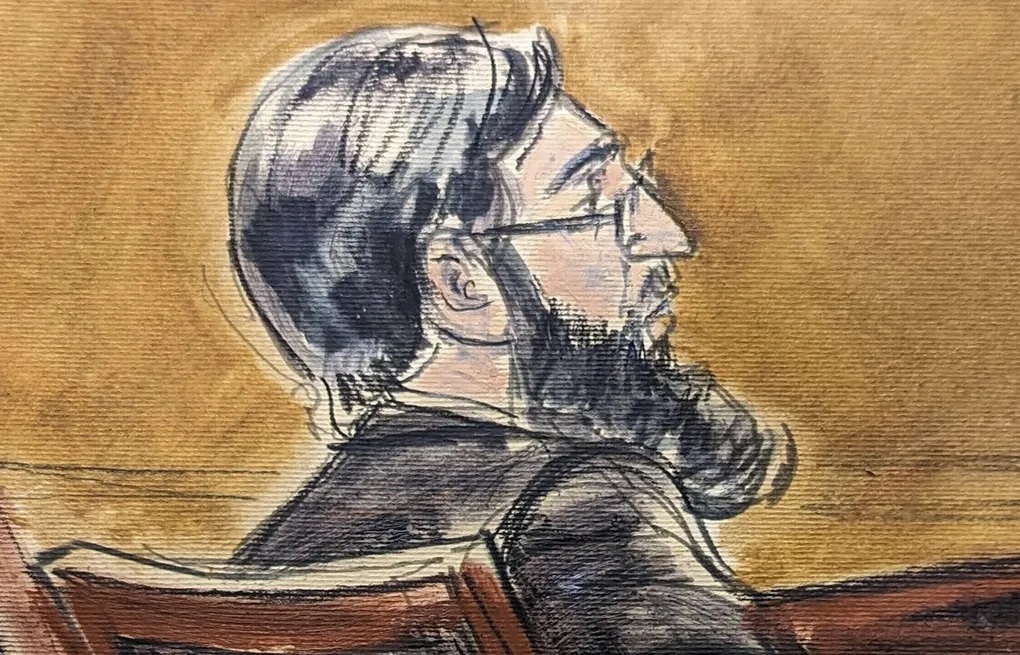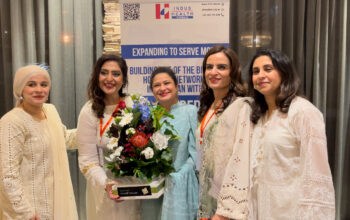US federal jury begins deliberations in death penalty trial for New York bike path attacker
A federal jury in the United States has begun deliberations to determine whether the convicted terrorist who carried out a fatal attack on a New York City bike path in 2017 will get the death penalty.
Lawyers finished closing arguments in Manhattan federal court on Tuesday in the penalty phase of Sayfullo Saipov’s death penalty trial. The penalty phase began in February, following Saipov’s January conviction.
The jury must vote unanimously in favour of the death penalty, or he will receive the lesser sentence of life imprisonment.

In closing arguments, a prosecutor for the US Attorney’s Office for the Southern District of New York called Saipov a “proud terrorist” who plotted to kill as many people as he could.
“When ISIS called upon him to fight overseas or attack here, he chose here – this city,” prosecutor Amanda Houle said. “The defendant spent years cultivating the hate that was the foundation for his attack.”
Saipov’s defence lawyer David Patton in his closing argument asked the jury to spare Saipov’s life for moral reasons, not because there are any excuses he wishes to offer for his client. Patton said Saipov’s death “is not necessary to do justice.”
Saipov was convicted in January of all counts against him for using a rented truck to fatally strike eight people on a city bike path during Halloween on October 31, 2017 – the deadliest terror attack in New York City since 9/11.
The jury convicted him on counts of murder in aid of racketeering activity, assault with a dangerous weapon and attempted murder in aid of racketeering activity, attempted murder in aid of racketeering activity, provision of material support to ISIS, and violence and destruction of a motor vehicle.

Prosecution asks jury to hold Saipov accountable
On Tuesday, Houle recounted trial testimony from family members of the eight killed and the surviving victims who testified about their suffering since that day.
“There can be no justice in this case without a close hard look at the anguish that the defendant chose for these families,” she said.
The mother of victim Ann-Laure Decadt testified about watching her daughter die on that bike path, leaving behind a family that includes a newborn who will never know his mother, Houle reminded jurors.
The mother of 23-year-old victim Nicholas Cleves also told the jury about her grief since losing her only child.
“There are no words in the human language that can adequately describe the excruciating pain that’s seared, that’s consumed me and has never left me since,” Monica Missio said at trial.
And Marie Rose Charles, a school bus matron who survived after Saipov’s truck crashed into her bus where she was caring for special needs children, testified that more than five years later, she continues to suffer pain at a “level nine” out of 10.

“She is literally tormented day and night by the defendant’s heinous crime,” Houle told jurors on Tuesday, recounting Charles’ testimony.
The prosecutor asked the jury to hold Saipov accountable for his calculated choices by sentencing him to death.
“He chose to do all of this to support a vile terrorist organization that hates Americans and seeks to kill them,” the prosecutor said in closing.
“He chose to attack a protected bike path on Halloween afternoon in the heart of the city filled with innocent people and surrounded by children. And he celebrates and stands by those choices without any remorse which shows you his depravity and the danger he poses. He chose to raise the stakes of justice. That’s on him.”
Houle also argued that this pending death penalty trial has not been an incentive for Saipov to control his aggression in prison.
Prison guards testified at trial that they heard Saipov “yelling about cutting off heads” in his prison cell. Saipov’s conduct since the attack shows that he still wants to kill, Houle said.
“He was banging and kicking the door and he punched his cell window so hard that he cracked the glass, something that that corrections officer had never seen before,” Houle said.

‘It is not necessary to kill Sayfullo Saipov’
Patton, Saipov’s court-appointed public defender, said that Saipov’s outbursts in prison were nothing more than a “temper tantrum” that didn’t pose any true danger within the confines of his cell.
Patton called on the jury to spare Saipov’s life on moral grounds.
“It is not necessary to kill Sayfullo Saipov. It is not necessary to keep us safe. It is not necessary to do justice,” Patton said – a mantra he repeated several times throughout the defence closing argument.
“By your verdict last month, you guaranteed he will spend the rest of his life in prison and not just any prison, he will be sent to one of the most isolated, solitary, locked away places on the face of the planet,”
Patton told jurors. “But now you face a very different and truly extraordinary decision – whether another human being should live or die. It is a unique, individualised moral decision.”
“Here in this case we’re asking you to decide that meeting death with more death is not the answer,” Patton said.
Saipov’s family hopes that the person they once knew and still love remains inside the man they say was radicalised and perpetrated a terror attack, Patton told the jury.
Several family members travelled from Uzbekistan to testify in Saipov’s defence, including his father, mother and sisters.

Saipov’s father gave emotional testimony in the penalty phase of the trial, sobbing uncontrollably at times, according to a court transcript.
Habibulloh Saipov told the jury that despite committing a “terrible tragedy” he loves his son, “with all (his) heart.”
“My soul was destroyed,” he said.
When asked if anything in his religion could justify his son’s crimes, Habibulloh Saipov said, “No. There is nothing that can justify this,” according to a transcript.
At one point, Habibulloh tried to apologise for his son’s actions but was cut off by a prosecutor’s objection. “I am feeling very bad about this, and I would like to apologise in front of everyone, all victims,” he began.
Habibulloh recalled how he and his son spoke for hours at a time while Saipov drove long haul trucking routes late at night in the US in the years before the attack. He was lonely and needed help staying awake, his father told the court.
This trip was the first time Habibulloh saw his son in 13 years, he said on the stand.
He was granted a special visa to testify at the trial, despite being previously denied visas to visit his son, Habibulloh said.
This trial is the last time he expects to see his son, he told the court, but Saipov’s life would continue to have meaning in prison should the jury spare his life.
“Because (he) will get enough time to realise the thing he committed, and also it’s important for his kids to know that their father is still alive,” Saipov’s father said, sobbing, according to the transcript.
Prosecutors did not cross examine Habibulloh Saipov.
At the end of Habibulloh Saipov’s emotional testimony, a relative yelled in court, disrupting the proceedings.
“Dirty ISIS Bastards” Sayfullo Saipov’s uncle shouted in Uzbek as he left the courtroom, according to a transcript. Court interpreters who translated the outburst said he might have said more but they could only hear that phrase, the transcript shows.
In the government’s rebuttal argument, prosecutor Jason Richman said Saipov must be held accountable with the most severe penalty the US justice system allows for the suffering he’s caused.
“The emotion and the pain you saw from his family – who caused it? The defendant. He had a loving family. He chose evil – he decided on death – he has caused his family this grief,” Richman said.








